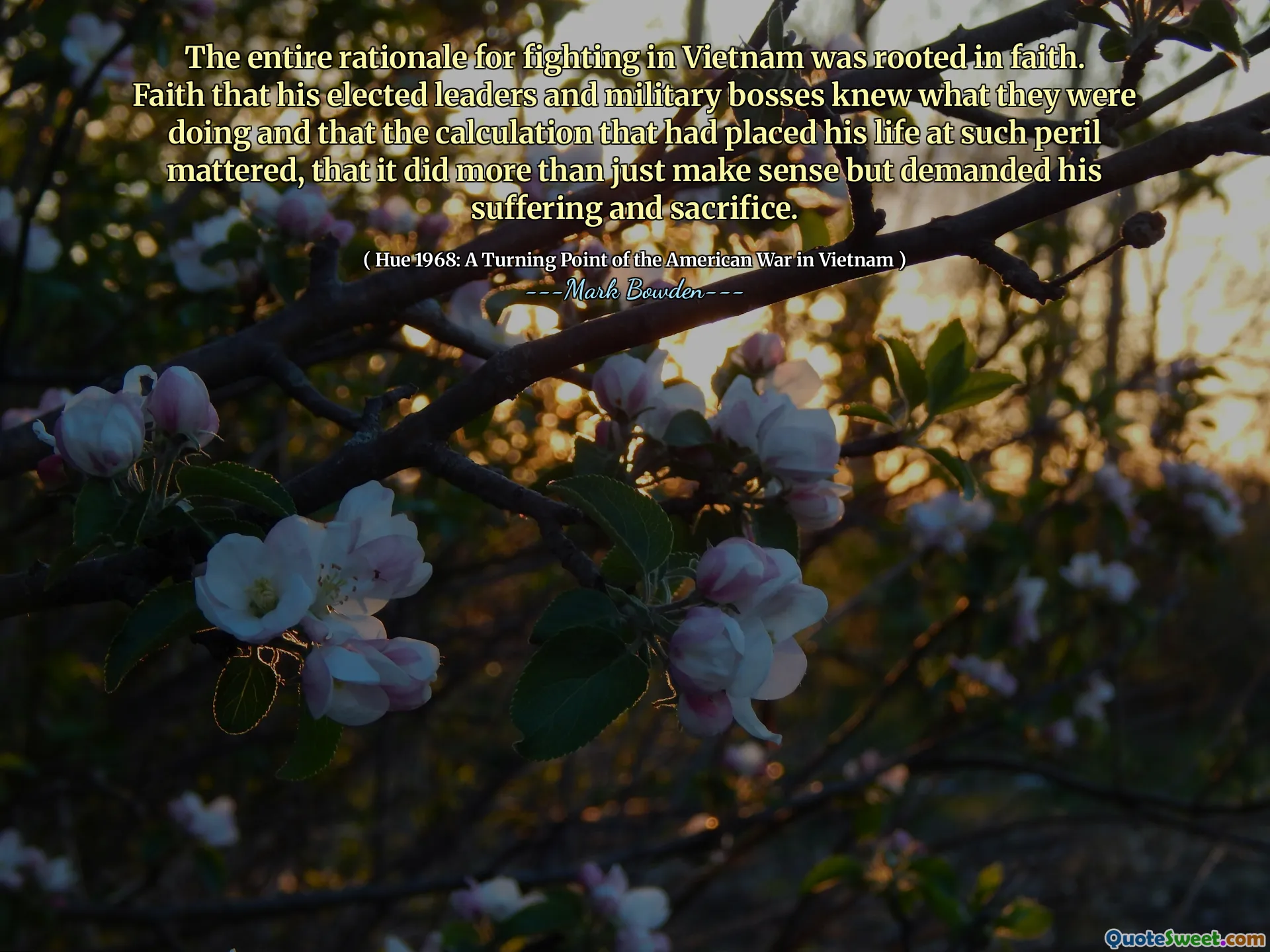
The entire rationale for fighting in Vietnam was rooted in faith. Faith that his elected leaders and military bosses knew what they were doing and that the calculation that had placed his life at such peril mattered, that it did more than just make sense but demanded his suffering and sacrifice.
This quote delves into the profound psychological and societal underpinnings of wartime sacrifice, highlighting how faith—whether it is in leadership, ideology, or national purpose—serves as a critical motivator for individuals facing lethal risks. It underscores a troubling aspect of conflict: soldiers often commit to perilous endeavors based on trust and a collective conviction that those in command possess knowledge and righteousness. During the Vietnam War, many young men believed in the leadership's strategic decision-making, trusting that their service was meaningful and justified. This faith helps explain why soldiers persisted despite enormous danger, a phenomenon rooted in deeper cultural and political conditioning. The quote invites reflection on how wartime narratives are sustained, particularly through societal and institutional assurances that sacrifices serve a higher purpose. However, this reliance also raises questions about the potential blind spots and failures of leadership, and whether such faith is always justified or susceptible to manipulation. It puts forth an empathetic view of soldiers' experiences, acknowledging that suffering and sacrifice are not merely individual choices but are often driven by a wider social contract rooted in trust. The quote ultimately serves as a reminder of the complex interplay between leadership, faith, sacrifice, and the human cost of war, prompting us to consider how these dynamics shape historical narratives and personal histories alike.






